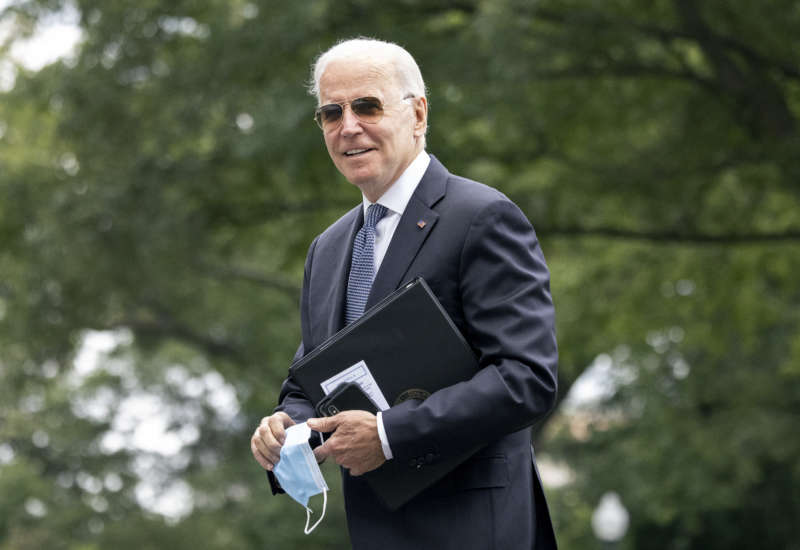President Joe Biden is launching a push on Thursday to curb vehicle emissions and set a benchmark for the U.S. to begin phasing out gas vehicles.
Biden is expected to sign an executive order setting a goal for half of all vehicles sold in the United States to be electric by 2030, which will likely play a key role in helping the U.S. meet Biden’s climate goals. He is also expected to reinstate and tighten tailpipe emission standards set under President Barack Obama (but rolled back by Trump) to cut greenhouse gas emissions and ramp up vehicle efficiency.
The transportation sector is the largest source of greenhouse gas emissions in the U.S., making up 29 percent of emissions in 2019, according to the Environmental Protection Agency (EPA). Without swift vehicle electrification, climate goals set by the administration like cutting emissions to 50 percent of 2005 levels by 2030 will be hard to reach, experts say,
Still, Biden’s announced goal for vehicle electrification will be difficult to achieve, logistically and politically. “There’s a battle on every front. There’s a battle in Congress. There’s a battle in the courts. There’s a battle against time,” Jody Freeman, Harvard Law School environmental and energy law director, told The Washington Post.
Indeed, as this summer’s climate events have demonstrated, time is of the essence on climate legislation. And with climate measures being carved out of the infrastructure plan, there are few options left for legislators who want to curb the climate crisis to do so.
In the latest and possibly final version of the bipartisan infrastructure bill, electric vehicle (EV) infrastructure funding ended up being cut by nearly 96 percent of Biden’s original proposal. Vehicle manufacturers have said that their compliance with Biden’s order hinges on funding and support for building more charging stations from Congress.
The latest bipartisan bill calls for only $7.5 billion for electric vehicle charging stations, half of the $15 that was allocated for charging stations in the June bipartisan framework. Car manufacturers like Ford, General Motors and Honda have signalled their support for Biden’s electrification goals. But the American manufacturers and United Auto Workers will only take the pledge to make 40 to 50 percent of their new car sales electric if the bipartisan bill passes with the $7.5 billion in EV charging funding.
Biden will also reinstate vehicle mileage standards rolled back by Donald Trump. Starting with 2023 car models, Biden will propose higher mileage standards in hopes of cutting emissions by 3.7 percent a year, mirroring a California vehicle emissions reduction plan. In 2025, the emissions cuts will ramp up by a 5 percent increase annually, and possibly more after that, the Associated Press reports.
Climate and environment groups have shared mixed views on Biden’s plans.
“This proposal is headed in a better direction, but the Biden administration can and should be more ambitious,” Environment America Carbon Campaign Director Morgan Folger said in a statement. “Over 5 years ago, the Obama-Biden administration took the strongest federal action to reduce global warming pollution in history, only to be stalled out by the automakers reneging on their promise…. We can’t turn back the clock 5 years, so we have to go even faster to zero out pollution from our cars and trucks and solve this climate crisis.”
Simon Mui, deputy director for clean vehicles and fuels at the Natural Resources Defense Council, praised the administration for taking action but told The Washington Post, “This proposal delivers less carbon pollution reductions than the Obama-era standards and includes unfortunate loopholes that undercut progress.”
Climate advocates have also recently taken umbrage with Biden for making major compromises on climate despite early promises for ambitious emissions reductions. “Today, the prospect of serious action on the scale needed to address the climate emergency, and the image of the Biden administration as being committed to climate action, are both in shambles,” wrote Basav Sen for Truthout.


